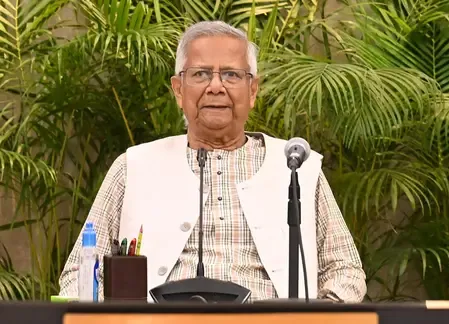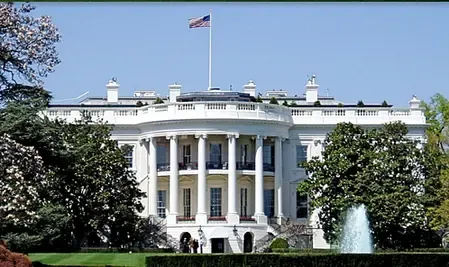Is Israel's Supreme Court Ruling on Shin Bet Chief Dismissal Legal?

Synopsis
Key Takeaways
- Supreme Court ruling declares Bar's dismissal illegal.
- Netanyahu's conflict of interest highlighted.
- Legal processes not followed in Bar's dismissal.
- Potential impact on national security and leadership.
- Ongoing military actions in Gaza raise humanitarian issues.
Jerusalem, May 22 (NationPress) Israel's Supreme Court has determined that the government's decision to terminate Ronen Bar, head of the Shin Bet domestic security agency, back in March was "illegal and contrary to law".
The ruling, delivered by a panel of three judges on Wednesday as reported by Xinhua news agency, stated that the dismissal took place "through an improper process and in violation of the law".
The court's findings highlighted that Prime Minister Benjamin Netanyahu was facing a conflict of interest due to an ongoing investigation known as "Qatar-Gate".
This investigation concerns alleged undisclosed interactions between Netanyahu's close associates and the Qatari government, contributing to rising tensions between him and Bar following the October 7 Hamas-led attack.
Netanyahu had announced Bar's dismissal citing a loss of confidence, as reported by Xinhua.
The Attorney General, Gali Baharav-Miara, along with opposition leaders, challenged this dismissal in the Supreme Court, which subsequently froze the action pending further examination.
In late April, Bar indicated his intention to resign on June 15. The following day, the government rescinded its dismissal order and petitioned the court to dismiss the challenges against it, claiming they were moot following Bar's resignation.
The ruling further established that the Netanyahu administration had failed to submit the dismissal to the appropriate advisory committee and did not conduct a legally mandated hearing for Bar, finding no factual basis for the decision.
Justice Yitzhak Amit, who serves as the Supreme Court's president, stated that Netanyahu's conflict of interest was exacerbated by the ongoing investigations, which could directly influence his political standing.
Amit concluded that the Prime Minister's involvement in the dismissal of the Shin Bet director was inappropriate due to this conflict.
Channel 12 reported that this ruling effectively permits Netanyahu to appoint a successor.
The court had initially issued an injunction blocking Bar's dismissal after the government announced it on March 20, setting the dismissal date as April 10. Despite the injunction, Bar declared on April 28 that he would resign voluntarily on June 15.
This situation unfolds as the Israeli military intensifies its offensive in Gaza, which has tragically resulted in the deaths of nearly 53,700 Palestinians, predominantly women and children, since October 2023.









